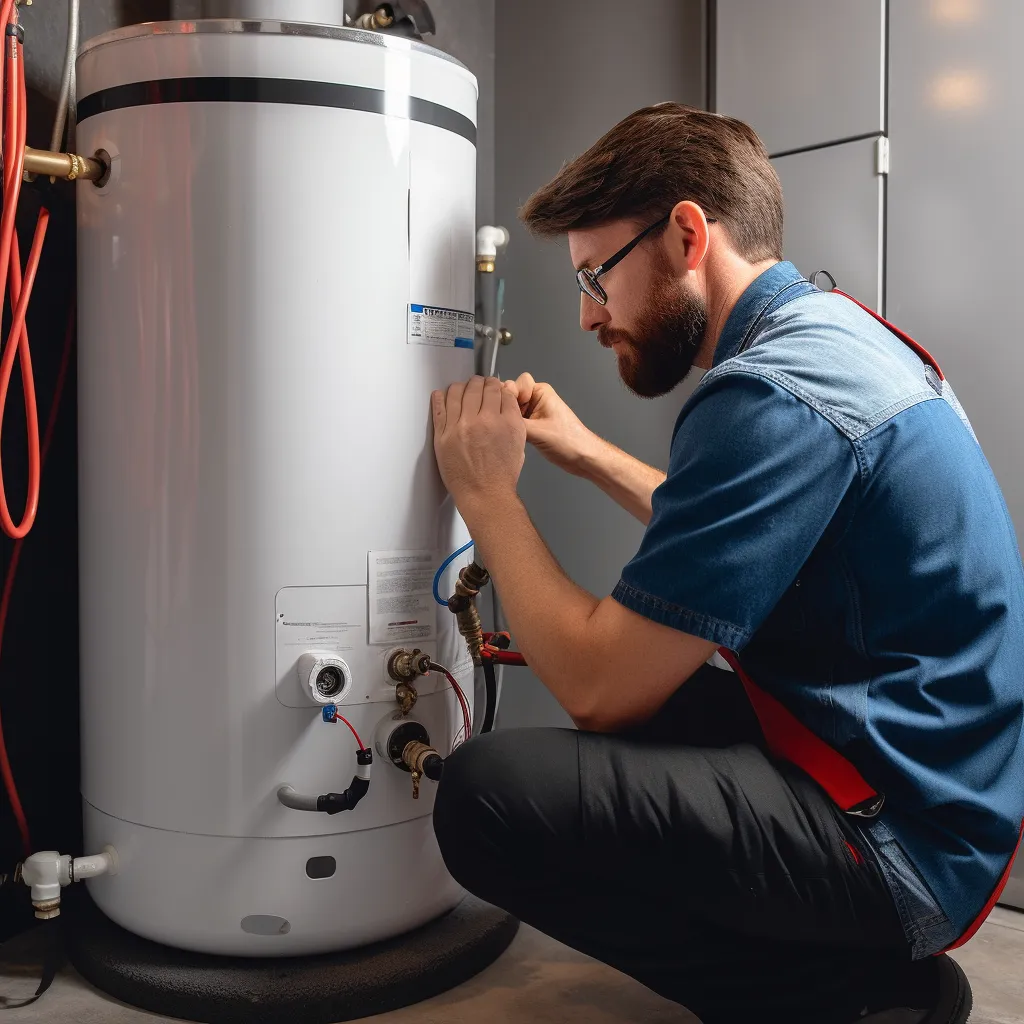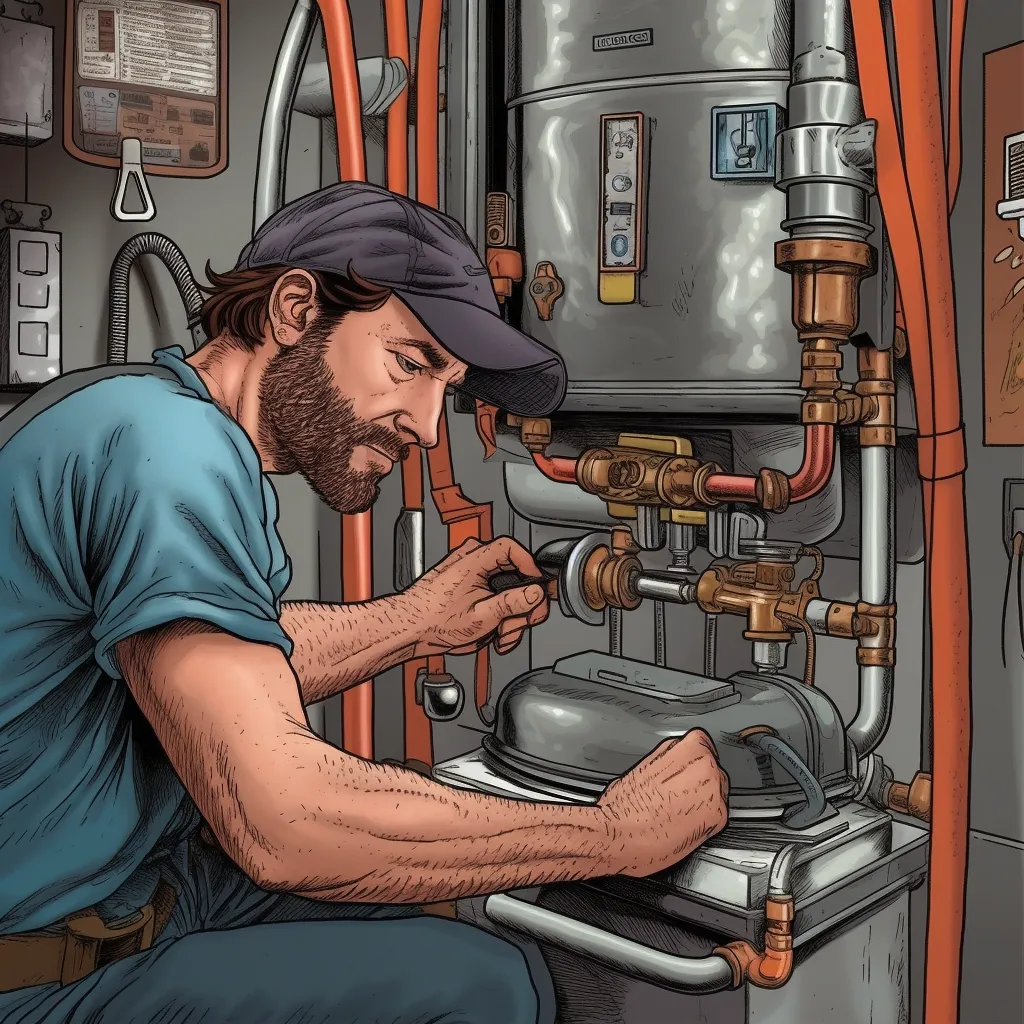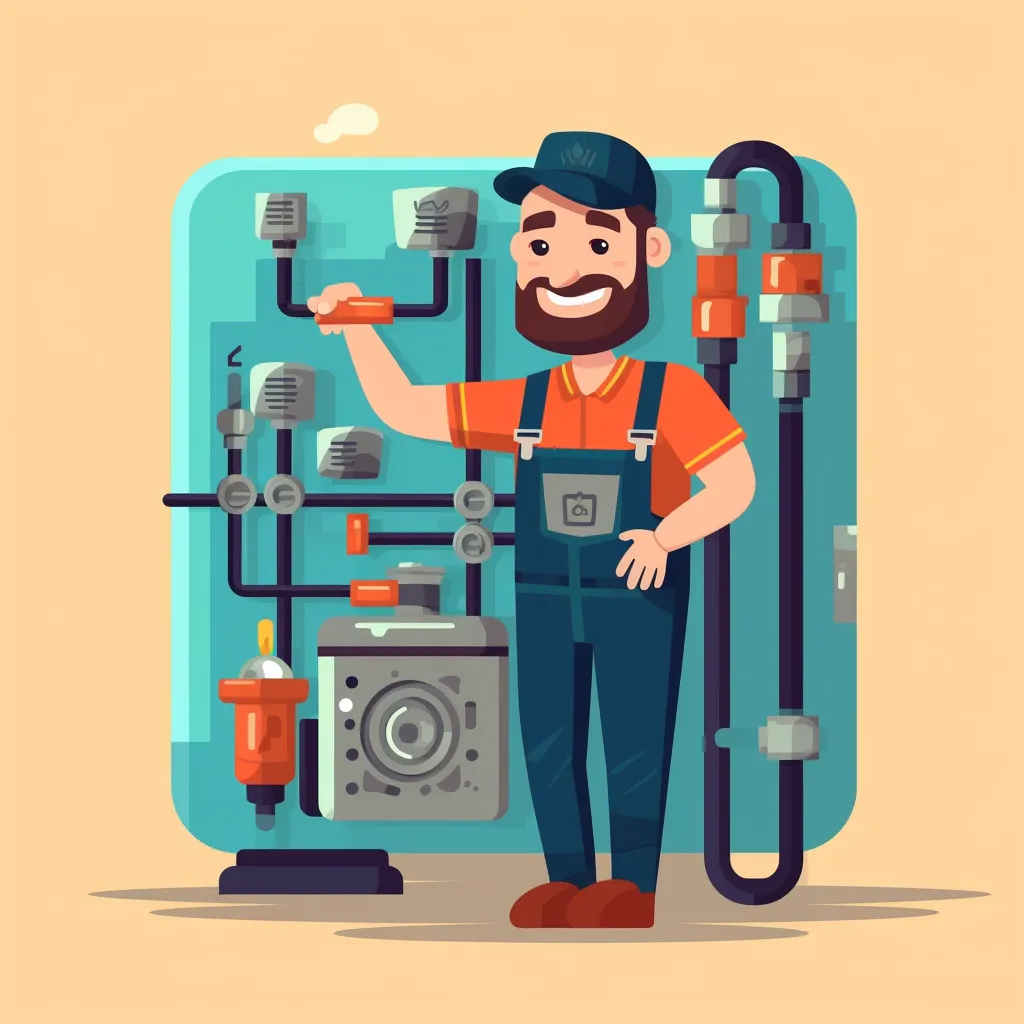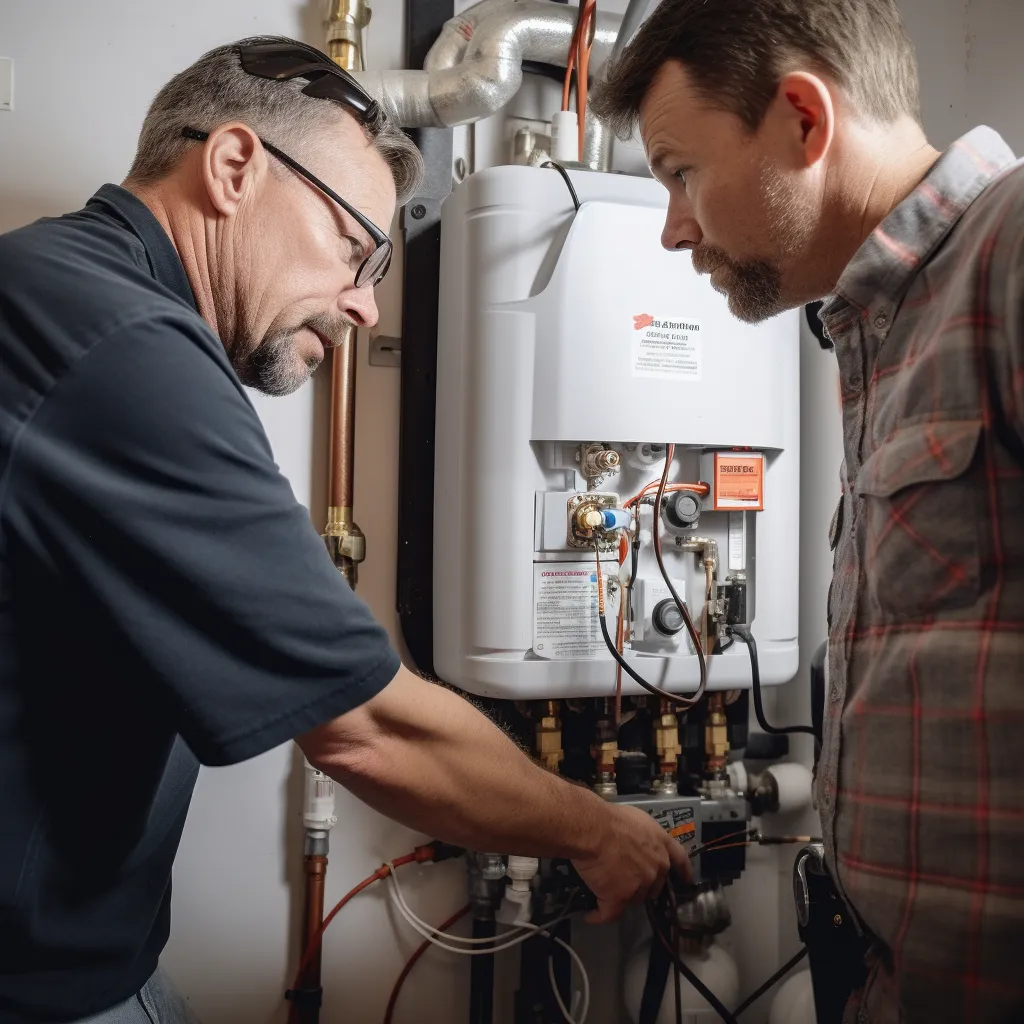Troubleshooting Common Water Heater Problems for Surprise, AZ Residents
Keeping your household running smoothly is essential, and one important aspect of that is maintaining your water heater. We depend on it for our daily activities, and a breakdown can be a chilly and inconvenient surprise. This guide is here to assist you in dealing with common water heater problems by offering troubleshooting tips. By promptly addressing these issues, you can guarantee that your water heater will keep working reliably and avoid any interruptions to your everyday schedule.

The tank is leaking
If you see water leaking from your water heater, it could be because of a defective pressure relief valve or a corroded tank. Here's what you can do to fix the problem:
Make sure to inspect the pressure relief valve to ensure it is working correctly. If you notice any leaks or if it is not releasing pressure as it should, it might be necessary to replace it. To ensure proper replacement, refer to the manufacturer's instructions or seek assistance from a professional.
When examining your water heater, make sure to carefully check the tank for any indications of corrosion, such as rust or deterioration. If you spot any corrosion or damage, it's crucial to swiftly replace the tank to prevent additional leaks or potential malfunctions.

The water is discolored
If the water coming out of your water heater looks discolored, it could be a sign that you need to flush and descale your unit.
It is important to check if the pressure relief valve of your water heater needs to be replaced. A malfunctioning valve can lead to issues and it may be necessary to have a professional replace it.
To enhance the performance of your water heater, consider using a solution of white vinegar and water to flush out any accumulated sediment and mineral buildup.
When checking your water heater, be sure to take a close look at the anode rod. Look for any signs of deterioration or corrosion. If you notice any corrosion, it's a good idea to replace the anode rod.
If you're experiencing any issues with scaling in your water heater, it's a good idea to seek help from a professional. They can perform a comprehensive descaling treatment to resolve the problem effectively.

The water has an unpleasant odor
If you're experiencing tank issues with your water heater due to the accumulation of bacteria, it's important to follow these steps:
It is recommended to schedule a professional inspection of the water heater tank to assess its condition and find out if a replacement is necessary.
To eliminate any unpleasant odors coming from your water heater, it is recommended to flush it using a mixture of white vinegar and water. This solution helps to effectively get rid of any build-up or bacteria that may be causing the odor.

Noisy water heater
If you hear strange sounds coming from your water heater, it could be due to the accumulation of sediment or loose components. Here's what you can do to fix these problems:
To maintain your water heater and prevent sediment buildup, it is important to flush it on a regular basis. Flushing entails emptying the tank to get rid of any sediment that has accumulated over time. This simple maintenance step will help your water heater function efficiently.
To ensure the optimal performance of your water heater, it is important to have a licensed plumber inspect all internal components. By doing this, you can ensure that all parts are properly secured and tightened. It is a simple step that can prevent any potential issues and help your water heater function efficiently.


Tank takes a while to reheat
If your water heater is taking a long time to heat up, there are a few potential causes. It could be due to a faulty thermostat, a tank that is too small for your needs, or the build-up of minerals in the tank. Fortunately, there are steps you can take to fix the problem.
Ensure that the thermostat is set at the temperature you want.
If needed, make adjustments accordingly.
If your water heater is not heating up as it should, it is possible that the thermostat is not working correctly.
It is important to have a trained professional inspect your water heater tank for any mineral buildup. Over time, minerals can gather and impede the heating process.
If you often find yourself running out of hot water, it could mean that your current water heater tank is too small for your home's requirements.
Low hot water pressure
Low hot water pressure can be a frustrating problem, but there are steps you can take to fix it. One possible cause is a small hot water tank, which can result in insufficient hot water flow. Another common cause is a leaky plumbing system, which can lead to reduced water pressure. To resolve these issues, you can consider upgrading to a larger hot water tank or repairing any leaks in your plumbing system. Taking these steps can help restore your hot water pressure and improve your overall water heater performance.

It is essential to have a properly sized hot water tank that can handle the hot water needs of all the outlets in your home. If your tank is too small, you may want to think about upgrading to a larger one in order to enhance the water pressure.
It's important to have a licensed plumber check your plumbing system for leaks. Leaks can cause a decrease in hot water pressure. If any leaks are found, they can be fixed to bring back normal water flow.
Ensure that the pressure relief valve is in proper working condition. Its purpose is to release any surplus pressure from the water heater tank.


Low supply of hot water
If you're finding that your hot water supply is running low and cooling down too fast, there could be a few reasons behind it. It may be due to a faulty thermostat, a water tank that is too small for your needs, or pipes that are blocked. To help you fix the problem, here are some helpful troubleshooting tips:
To make sure your water heater is working properly, it's important to check the functionality of the thermostat. This device controls the temperature of the water and ensures it is set to your desired level.
Ensure the optimal performance of your water heater by scheduling a professional inspection. By having a licensed expert assess your water heater, you can identify any potential issues and prevent problems before they arise.
If your current water heater tank isn't keeping up with your hot water needs, it might be too small. Upgrading to a larger tank could be a smart move.
Prevent future water heater problems
To avoid potential problems with your water heater in the future, it is advisable to:

It is important to regularly inspect check valves and fittings to avoid any potential leaks. Leaks can cause water damage and lead to inefficiency in your water heater system.
It is important to replace the anode rod of your water heater every few years in order to prevent corrosion.
Ensure optimal performance and longevity of your water heater by scheduling professional descaling or annual servicing.
It is important to select the right size water heater that suits your specific requirements.
To optimize the performance and efficiency of your water heater, it is important to adjust the temperature to the recommended settings.
To reduce the amount of heat lost from your pipes, it is recommended to insulate them. Insulating your pipes helps to keep the hot water warmer for longer, resulting in less energy wastage.
When looking for a water heater, it is important to consider energy-efficient models. By choosing an energy-efficient water heater, you can reduce energy consumption, saving both the environment and your wallet.
It is crucial to promptly address and fix any leaks in your water heater system. Delaying or ignoring leaks can lead to more significant problems and potential damage to your property.
Not only can leaks result in water wastage, but they can also contribute to increased energy consumption and higher utility bills.
It's important to become familiar with the location of the shutoff valve. Knowing where it is will make it easier for you to quickly turn off the water supply to your water heater if needed.

If you're not confident in your ability to handle repairs or maintenance for your water heater, it's always a good idea to reach out to a professional. However, you can still take some simple steps to ensure your water heater stays in great shape and avoid any future problems.
What to look for in a licensed plumber
When choosing a licensed plumber, it is crucial to do your homework and take into account the following factors:

It is crucial to make sure that the plumber you hire for your water heater needs is licensed and insured. This not only gives you peace of mind but also provides protection for you and your property.
When searching for a plumber to assist with water heater repair and maintenance, it's important to find someone with the right experience and specialization in this area.
When choosing a plumber for your water heater needs, it is important to inquire about any service guarantees they offer.
When choosing a plumber for your water heater needs, it is important to select someone who communicates well.
Reach out to an experienced professional
If your water heater is giving you trouble, it's important to get professional help from a licensed plumber. They can diagnose the problem and provide a lasting solution. By taking these suggestions into consideration, you'll be able to fix any issues with your water heater and keep your home running smoothly. And if you need any additional help or guidance, don't hesitate to reach out to a skilled plumber who can assess your water heater and offer effective solutions to get it working properly again.
Contact Us


